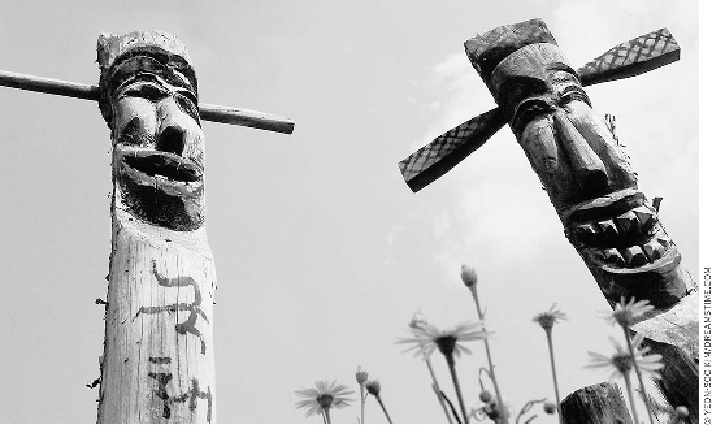Travel Reference
In-Depth Information
Shamanist totems still greet entrants to some villages.
Buddhism was introduced to Korea by Chinese scholars in the 4th century and is currently
the professed religion of around a quarter of the population. It is based on the teachings of
Siddhartha Gautama, a scholar born around 563 BC in modern-day Nepal. Gautama, now
known as the Buddha, turned his back on a life of luxury to search for a way to end suffering
and break the cycle of recurring births and deaths, which he discovered could be transcen-
ded through disciplined living and meditation. Korean Buddhism is of the Mahayana (Great
Vehicle) school, which emphasizes the liberation of all beings rather than the individual
attaining enlightenment. It has been heavily influenced by
seon
thought (known as
chan
in Chinese, or Zen in Japanese), which views direct experience and meditation practice as
more important than scripture or theoretical knowledge. The country's main Buddhist sect,
the Jogye order, allows both men and women to be ordained as Buddhist monks or nuns;
those taking vows are expected to follow a series of precepts that prescribe vegetarianism
and celibacy.

